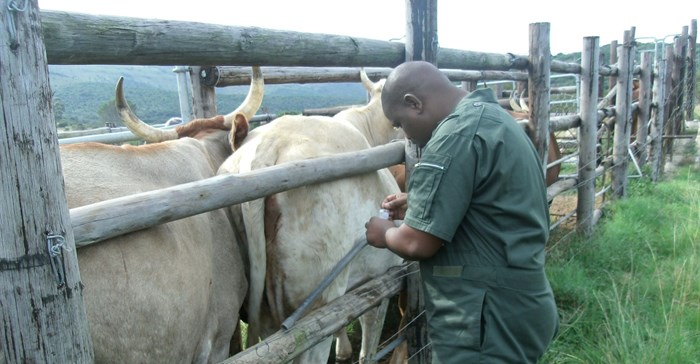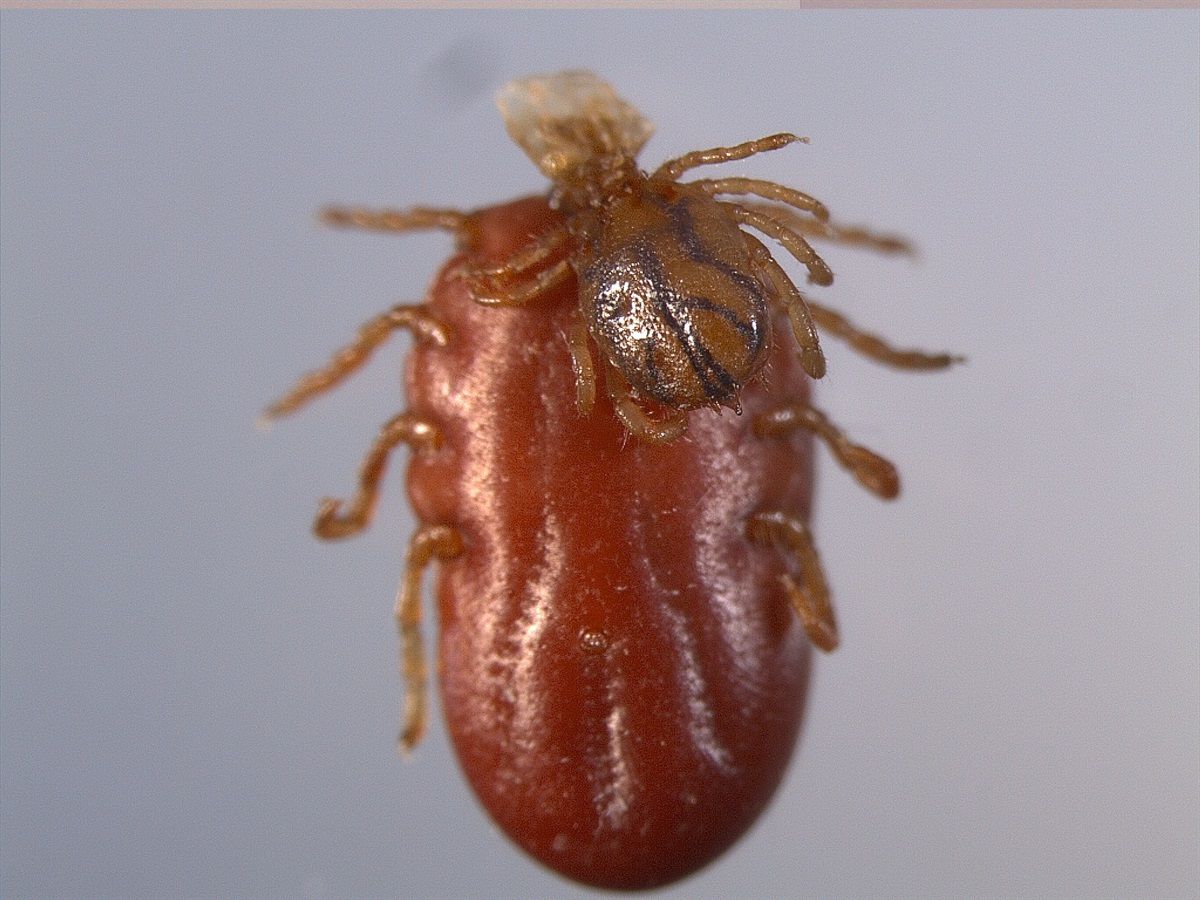Dr Nyangiwe's doctoral studies shed light on distribution and ecology of ticks
Name a tick, any tick, and Dr Nkululeko Nyangiwe of Stutterheim in the Eastern Cape will probably be able to tell you where you will find it in South Africa and in which type of vegetation. Since 2012, he has been working on his part-time doctorate in entomology about the distribution and ecology of ticks that are of economic importance to cattle farmers in South Africa and Namibia, and especially also in the Eastern Cape. Over the last five years, he has painstakingly collected more than 8,000 ticks from cattle on 80 farms across South Africa.

Dr. Nkululeko Nyangiwe. Image: Sonja Matthee
Nyangiwe is one of 15 students of the Faculty of AgriSciences at Stellenbosch University who will receive their PhD degrees during the institution’s graduation week.
His studies were supervised by Prof Sonja Matthee in Stellenbosch University’s Department of Conservation Ecology and Entomology. She praised his commitment towards his studies. “It is never an easy thing to do to hold down a full-time job while also pursuing studies, let alone a PhD degree,” she said.
Although Nyangiwe didn’t have the luxury of dedicating his attention 100% to his studies, he says it did help that issues related to ticks and tick-borne diseases are also part of his day job. This production scientist at the Döhne Agricultural Development Institute in Stutterheim regularly conducts research trials, often with the health of livestock in mind. There he has worked himself up through the ranks since joining the institution in 2002 as an animal scientist.
Hard work recognised
His diligence has paid off. In September 2017, he received the Bronze Medal from the South African Society of Animal Science (SASAS) at the annual congress held at Port Elizabeth for the meritorious PhD study. In the same month, he presented some of his work on the range expansion of the economically important Asiatic blue tick (Rhipicephalus microplus) at the third International Congress on Parasites of Wildlife held in the Kruger National Park.
Nyangiwe says it all started with small-scale studies that he conducted along with colleagues on the ecology and distribution of tick species in the Eastern Cape Province. “This led to the development of a much larger study that included localities with different agro-ecological zones, including aspects of animal management practices as well as veld management,” he remembers.
He has since published ten research papers in peer-reviewed journals about his work – not bad for a newly graduated PhD.
Major research findings: climate change, animal movement is allowing ticks to expand their range
One of his first significant findings was that the alien pantropical blue tick (Rhipicephalus microplus), a parasite that originated in Asia has spread to Namibia. It probably piggybacked on livestock imported from South Africa. The tick is linked to tick fever (babesiosis), and gall sickness (anaplasmosis) in cattle.

Pantropical blue tick. Image: Dr Nkululeko Nyangiwe
In his latest paper, published in the Journal of the South African Veterinary Association, he sets out how this tick has slowly but surely expanded its range across South Africa.
It was previously thought to occur only in the northern and eastern parts of the country. Worryingly, Nyangiwe’s studies have shown that the pantropical blue tick is now also present throughout the coastal region of the Eastern Cape, as well as the north-eastern region of the Northern Cape province. One record was made for the Free State. In the Western Cape, it was found on animals from farms near Wellington, Stellenbosch and Kuilsriver. Many of these animals are part of breeding stocks that are regularly transported to and from the northern grasslands and savanna regions of South Africa.
This recent finding means that the pantropical blue tick is now also comfortable in the Albany Thicket vegetation of the Eastern Cape, in the Bushveld of the Northern Cape and isolated patches of fynbos in the Western Cape.
“It is possible that the establishment of the Asiatic blue tick in naïve environments will result in higher disease incidence and tick-related deaths,” he says. “Several babesiosis-related deaths have already been recorded among naïve cattle that have not previously been exposed to this tick species.”
“Ticks and tick-borne diseases have a significant impact on the health of domestic animals worldwide. It is difficult to estimate, but ticks and tick-borne diseases could cost the industry between $14 and 19bn,” he explains the practical implications of his mapping exercise, and the role it plays in the provision of veterinary services. “If one is able to map where certain tick species occur, government and farmers are better able to coordinate control strategies.”
“The observed range changes may be facilitated by the combined effects of environmental adaptability by the tick and the movement of host animals,” he says. “Ticks that used to be found only in colder regions are now also found in warmer locations, and vice versa.”
Secret to success
Dr Nyangiwe says that having to study part-time isn’t easy, and comes with a huge responsibility. How does one stay focused? “Self-motivation combined with determination and a well-orientated vision,” he says of the demands that come with having to balance work, family-time and studies. “More than anything else, support is very vital in all aspects.”
In this regard, he thanked his wife, Khunjulwa, who is also busy with postgraduate studies in social sciences, and his sons, Odwa and Thembelihle, who are studying towards pharmacy degrees at the Nelson Mandela University.